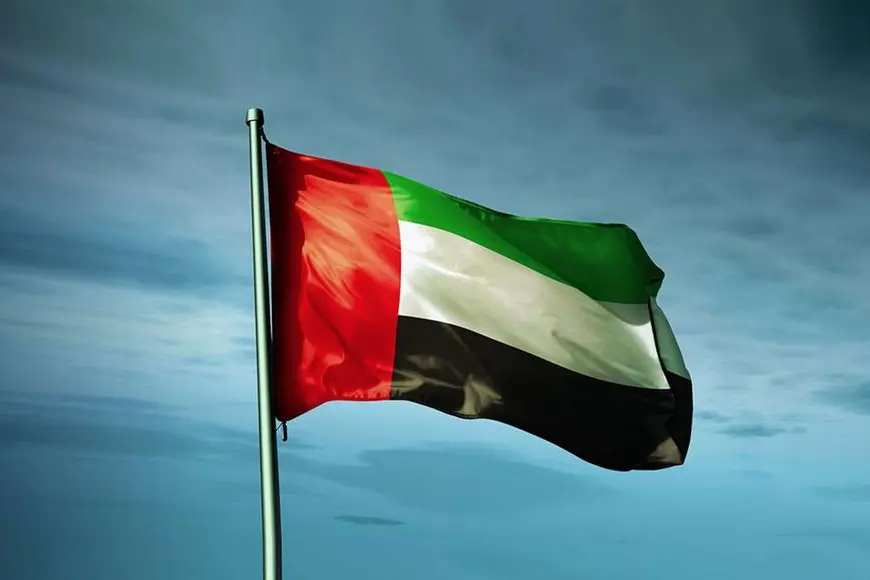PHOTO
GENEVA - A delegation from the UAE, headed by Dr. Abdulla Al Mandous, Director-General of the National Centre of Meteorology (NCM), and President of the Regional Association II (Asia), participated in the 76th Session of the Executive Council (EC-76) of the World Meteorological Organisation (WMO), from 27th February to 3rd March, 2023, in Geneva, Switzerland.
The meeting agenda included a discussion on the Executive Council members’ recommendations on the WMO’s draft Strategic Plan for 2024-2027, designating new acting Executive Council members, and confirming the date of the next WMO Congress from 22nd May to 2nd June, 2023, and the EC-77 on 5th and 6th June, 2023.
The session also discussed the proposal of the WMO Secretary-General to incur the maximum expenditure of the organisation for the upcoming financial period and the recommendations of the WMO’s new technical commissions, including the Commission for Weather, Climate, Water and Related Environmental Services and Applications (SERCOM) and the Commission for Observation, Infrastructure and Information Systems (INFCOM) based on the organisation’s long-term goals.
On the sidelines of EC-76, Lubna Qassim, Deputy Permanent Representative of the UAE’s Permanent Mission to the United Nations in Geneva, introduced Dr. Abdullah Al Mandous and his candidacy for WMO’s 2023-2027 presidency and held bilateral meetings with Permanent Representatives of the UN Mission in Geneva for Germany, France, Canada Jamaica, China, India, the USA, Turkey, Finland, Australia, South Africa and the European Union.
During these meetings, Dr. Al Mandous shared with them his vision, plans and priorities to develop the WMO’s work mechanisms, bolster global water security and set up early warning systems to protect vulnerable communities, which were well received by the Permanent Representatives who expressed their best wishes to Dr. Al Mandous as the UAE’s official candidate for WMO presidency election.
During his participation in EC-76 sessions, Dr. Al Mandous presented his Presidential Report that included the 2024-27 regional priorities of the Asian region, which was up-taken into the Organisational strategy. He also nominated Obayashi Masanori from Japan as the acting EC Member from RAII ASIA.
Dr. Al Mandous also highlighted the key achievements and upcoming plans of RAII and presented the outcomes of the recent RAII Management Group held in Abu Dhabi, which included the approval of the updated RAII Operating Plan and RAII Regional Partnership Strategy, as well as the submission of its regional priorities for 2024-2027 and Research and Innovation priorities for 2023-2027.
Dr. Al Mandous said, “The EC sessions offer an ideal opportunity to promote coordination among WMO regions and to discuss the ongoing progress in implementing WMO’s strategic goals and plans given the regional and international developments in meteorology and related topics. Furthermore, the event allows us to take a comprehensive account of our regional and international priorities in tackling the extreme climate phenomena while reiterating our shared commitment to advancing the science of meteorology and weather forecasting to support global efforts towards climate change mitigation.”
Al Mandous also revealed that the next Regional Technical Conference (RECO) would take place from 13th to 16th March, 2023, in Abu Dhabi. The conference agenda will include a High-Level Segment on the opening day, followed by technical and research sessions. Invitations will be sent to all region ambassadors to attend the High-Level Segment, which will be an excellent opportunity to present the UN Call on Early Warning for All to the governments and policymakers to build support and mobilise resources.
The UAE Ministry of Foreign Affairs and International Cooperation (MoFAIC) earlier named Dr. Al Mandous as its official candidate for the WMO’s 2023 - 2027 Presidency.
As part of his election campaign, Dr. Al Mandous aims to accelerate an internationally coordinated action to achieve UN Secretary-General’s request to ensure that “every person on Earth is protected by Early Warning Systems in the next five years” by working together with the WMO’s key stakeholders and taking a five-pillar approach to delivering on its vision to promote resilience to the socioeconomic consequences of extreme weather, climate, water and other environmental events.
This approach focuses on supporting the role of Regional Associations’ Presidents and Permanent Representatives, making “Early Warnings for All” a reality, advancing high-resolution climate computing research, recognising the WMO by the global society, and taking proactive steps in water security and renewable energy research.





















